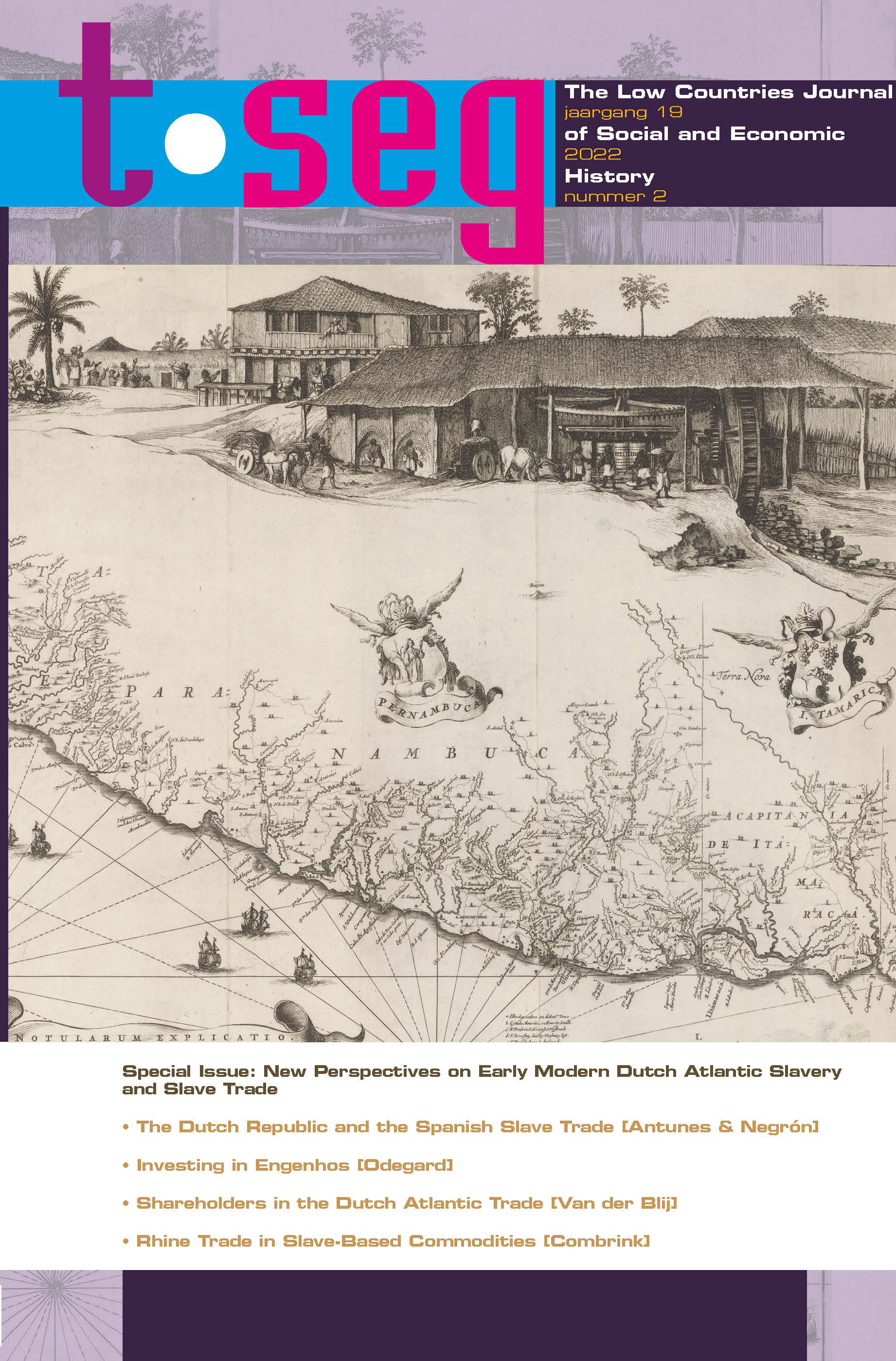Shareholders in the Dutch Eighteenth-Century Atlantic Trade
DOI:
https://doi.org/10.52024/tseg.8371Keywords:
Middelburg, Accounting, Atlantic, Slave Trade, TransatlanticAbstract
This article provides the first quantitative evidence of the indirect benefits of shareholders of the Middelburgse Commercie Compagnie (MCC), a Dutch Atlantic trading company and the biggest slave trader in the eighteenth-century Dutch Republic. MCC shares provided its owners with a preferred status as suppliers and customers of the company. This article focuses on two years, 1725 and 1770, and finds that approximately one third of the MCC shareholders in both years acted as suppliers or customers of the company. The financial incentives of the directors appear to be better aligned with the financial interests of the shareholders in 1770 compared to 1725.
Downloads
Published
Issue
Section
License
Copyright (c) 2022 Koen van der Blij

This work is licensed under a Creative Commons Attribution 4.0 International License.






